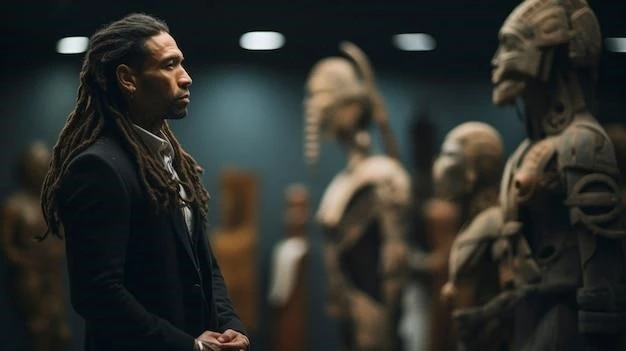Throughout history‚ countless individuals have left their mark on the world. Some are remembered for their artistic genius‚ others for their scientific discoveries‚ and still others for their unwavering courage in the face of adversity. Among those who have shaped the course of human events‚ leaders stand out as particularly influential figures. These men and women‚ through a combination of vision‚ charisma‚ and often ruthlessness‚ have steered nations‚ sparked revolutions‚ and left an indelible legacy on the world stage. This article delves into the lives and accomplishments of some of the most important leaders in history‚ individuals whose actions have reverberated through time and continue to shape the world we live in today.
1. Genghis Khan (1162-1227)
Born Temüjin into a tumultuous world of tribal warfare in Mongolia‚ Genghis Khan rose from humble beginnings to unite the Mongol tribes and forge one of the largest contiguous empires in history. A brilliant military strategist and a ruthless pragmatist‚ he led his armies to conquer vast swathes of Asia‚ from China to Eastern Europe. While often remembered for the brutality of his conquests‚ Genghis Khan was also a shrewd administrator who promoted religious tolerance within his empire and established a system of meritocracy that transcended traditional tribal hierarchies. His empire fostered trade along the Silk Road‚ facilitating cultural exchange between East and West‚ and his legal code‚ the Yassa‚ laid the groundwork for a relatively unified legal system across his vast domains. Genghis Khan’s impact on world history is undeniable‚ his conquests reshaping the political map of Asia and leaving a lasting legacy on the cultural and genetic landscape of the region.

2. Abraham Lincoln (1809-1865)
Abraham Lincoln‚ the 16th President of the United States‚ led his nation through its bloodiest conflict‚ the American Civil War‚ and ultimately abolished slavery‚ a practice that had stained the nation since its founding. Born in a log cabin in Kentucky‚ Lincoln rose from humble beginnings to become a lawyer and politician known for his eloquence‚ wit‚ and unwavering moral compass. As President during the tumultuous years of the Civil War‚ Lincoln held the Union together‚ guiding it through its darkest hour and ultimately preserving its integrity. His Emancipation Proclamation‚ issued in 1863‚ declared the freedom of slaves in Confederate-held territory‚ striking a blow against the institution of slavery and changing the course of the war. Lincoln’s assassination just days after the war’s end solidified his image as a martyr for the cause of freedom and equality. His Gettysburg Address‚ a masterpiece of oratory‚ continues to inspire generations with its message of unity‚ equality‚ and the enduring power of democracy.
3. Mahatma Gandhi (1869-1948)
Mohandas Karamchand Gandhi‚ more affectionately known as Mahatma‚ meaning “great soul‚” was the preeminent leader of Indian nationalism in British-ruled India and one of the most influential figures in the 20th century. A lawyer by training‚ Gandhi developed a philosophy of nonviolent resistance‚ or Satyagraha‚ which he employed to great effect in the struggle for Indian independence. His philosophy centered on the principles of truth‚ nonviolence‚ and self-rule‚ resonating with millions of Indians and inspiring movements for civil rights and social justice across the globe. Gandhi led numerous campaigns of civil disobedience against British rule‚ including the Salt Satyagraha in 1930‚ which challenged the British monopoly on salt production‚ and the Quit India Movement in 1942‚ which demanded immediate independence for India. His unwavering commitment to nonviolence‚ even in the face of brutal repression‚ made him a global icon and earned him the respect of world leaders. Gandhi’s legacy continues to inspire activists and leaders around the world‚ demonstrating the power of nonviolent resistance in challenging injustice and promoting social change.
4. Nelson Mandela (1918-2013)
Nelson Mandela‚ a towering figure in the struggle against apartheid in South Africa‚ became an international symbol of resistance to racial segregation and oppression. Imprisoned for 27 years for his activism against the apartheid regime‚ Mandela emerged from prison in 1990 as a powerful symbol of hope and reconciliation. As South Africa’s first black president‚ elected in the country’s first multiracial democratic elections in 1994‚ Mandela led the transition from apartheid to a multiracial democracy with remarkable grace and forgiveness. He championed a vision of a “Rainbow Nation” where people of all races could live together in harmony and equality. His efforts to heal the wounds of the past and build a more just and equitable society earned him the Nobel Peace Prize in 1993 and cemented his legacy as one of the greatest moral leaders of the 20th century. Mandela’s life and work continue to inspire people around the world to fight for social justice‚ equality‚ and human rights.
5; Martin Luther King Jr. (1929-1968)
Martin Luther King Jr.‚ a Baptist minister and activist‚ became the most prominent spokesperson and leader in the American civil rights movement from 1955 until his assassination in 1968. Inspired by his Christian beliefs and the nonviolent teachings of Mahatma Gandhi‚ King led a mass movement against racial segregation and discrimination in the United States‚ advocating for equal rights and treatment for all citizens‚ regardless of race. Through his powerful oratory‚ unwavering courage‚ and commitment to nonviolent resistance‚ King galvanized the nation’s conscience‚ leading marches‚ boycotts‚ and demonstrations that challenged the Jim Crow laws of the American South. His “I Have a Dream” speech‚ delivered during the March on Washington for Jobs and Freedom in 1963‚ articulated a vision of a society where his children would “not be judged by the color of their skin but by the content of their character‚” becoming a defining moment in the civil rights movement and a beacon of hope for equality and justice. King’s legacy continues to inspire generations to fight for social justice and to dream of a more equitable and just world.

Conclusion
The leaders highlighted in this article represent a small fraction of the countless individuals who have shaped the course of human history. Their stories‚ though diverse in time‚ place‚ and circumstance‚ share a common thread: the power of individuals to effect profound change in the world. Whether through military prowess‚ political acumen‚ or unwavering commitment to social justice‚ these leaders have left an indelible mark on human civilization‚ shaping the political‚ social‚ and cultural landscape of their times and beyond. Their legacies continue to inspire and challenge us today‚ reminding us of the enduring power of leadership and the importance of striving for a more just and equitable world.










